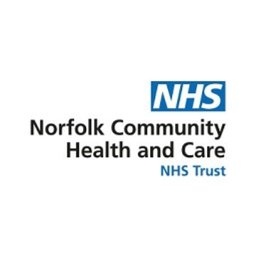Senior Medicines Optimisation Pharmacy Technician
Job Description
Medicines management and optimisation duties Undertakeprescription chart checks in line with SOPs and refer interventions or discrepancies to the appropriate pharmacist or healthcare professional when necessary ensuring that prescriptions are legible, unambiguous and legally acceptable. Conduct ward and clinic level audits, and report results as appropriate. Maintain safe systems of medication supply to wards and teams. Be responsible for the supply of medicines.
Complete medicines reconciliation in line with SOPs. Assess suitability, quality and identity of patients own medicines (PODs) for extended use on wards and as discharge medicines in line with SOPs and encourage patients relatives or carers to bring in patients own medicines. Monitor stock control and storage of medicines on the wards and at team bases to ensure timelyavailability whilst minimising waste. Undertake routine statutory storage and controlled drug checks of medicines on wards and in teams.
Liaise with wards / teams, pharmacy staff and clinical pharmacists to ensure stock lists are up to date and reflect current and emergency usage in line with trust guidelines. Facilitate discharge through liaison with GP practices, community teams and community pharmacies, to ensure seamless transfer of care and continuity of supply and ensure appropriate use of adherence aids. Liaise closely with other healthcare professionals regarding interface issues affecting patients including GPs community pharmacies and district nurses. Order routine stock for wards and teams in line with service SOPs.
Order supplies supplies of medicines for individual patients for use in hospital and at discharge as part of the one stop dispensing procedure. Accuracy check the quantity and quality of drug strength form dose and directions of all medicines contained in the bedside medicine locker at regular intervals during the patient stay to cheque for discrepancies and sufficient quantity of medicines in anticipation of discharge. Identify and address adherence issues liaising with health and social care professionals and carers where necessary, assisting with organising, where necessary, aids for individual patients (medication reminder cards, dosette boxes etc.). Provide information and counselling on the use of medicines to selected patients and or carers taking into account their level of understanding, competence and behaviour.
Assess patient's ability to self-administer and monitor patients who are self-administering as per trust SOP. Be responsible for resolving problems, responding to queries and providing advice at ward or team level, reporting or referring where appropriate. Facilitate resolution of medicines supply problems when requested. Destroy expired or unwanted medicines as per local procedures.
Ensure wards have appropriate stock rotation systems, stock list and medicines storage. Receive information and answer or refer queries from patients and other members of the multidisciplinary team relating to the technical aspects of the clinical pharmacy service. Record patient interventions and medicines activity in patients record. Liaise closely with ward pharmacist and medicines safety pharmacist.
Support and develop consistent standards and practise in medicines management within the organisation The position will have a degree of autonomy to act on individual patient medicine pharmaceutical care, to deliver safety improvements for individual patients. There is an expectation that the post holder will practice within safe limits and always refer to a pharmacist when unsure or when there is a need to resolve complex or more challenging situations. Support the Pharmacists and Head of Medicines Optimisation to ensure that medicines are handled safely and securely within the organisation. Provide advice and input to patients carers staff on issues relating to medicines management.
Identify and take action on pharmaceutical issues as they arise. Support investigation and resolution of medicines related incidents. Support staff when medication errors or incidents occur and identify ways to improve safe and secure handling of medicines. To participate in regular audit and produce audit report if appropriate.
Identify need for and assist to develop and implement policies and procedures, patient group directions, clinical guidelines and protocols to support the safe and secure handling of medicines relevant to their work environments. Assist in training of ward staff involved in medicines management and administration as appropriate. Manage resources associated with the pharmacy service Participate in regular reviews of organisational structures skill mix and deployment of pharmacy staff to ensure the service is responsive to changing needs and techniques. Promote the clinical and cost-effective use of medicines throughout the organisation.
Interpret financial information on drug expenditure for budget holders. Manage resources and identify cost saving efficiencies within any areas of service and discuss with manager to produce action plans. Communicate succinctly and effectively with patients and other healthcare staff. Interventions that produce direct improvements in patient safety will be recorded to demonstrate effectiveness.
People leadership and management Provide inclusive, compassionate and effective leadership for your team by setting clear vision and direction. Develop a culture and environment in which members of staff are encouraged and supported to deliver high- quality services and are supported to innovate and improve services where appropriate. Encourage your team to feel able to raise concerns openly and safely. Support prompt recruitment and participate in the selection and effective induction and onboarding of new joiners to the team.
Ensure that all team members have a very positive introduction to the team and a well supported first year. Ensure that key messages are cascaded in your team and that your team are encouraged to put forward suggestions. Show appreciation to your team when they do good work and support them when they are struggling. Consider the individual needs of team members for a healthy work-life balance and think about how their needs can be supported by providing flexible ways of working.
Support all team members to keep their mandatory and statutory training up-to-date and identify the learning and development needs of all team members of the team ensuring that everyone has an up-to-date personal development plan (PDP). Ensure all team members receive a constructive assessment of their performance each year and set SMART objectives for the coming year. Act as a positive role model at all times, encouraging people to feel equal members of the team whilst working within clear frameworks and policies. Ensure that you and your team understand all of the agreed key performance indicators for your service, particularly relating to outcomes and essential standards to be met.
Ensure that you and your team understand data quality standards and that all the necessary records for your service are maintained and reported. Ensure that you and your team understand all of the clinical and business action plans relevant to your services. Ensure that you and your team understand all of the monitoring, auditing and reporting systems relevant to your services. Service development and planning Actively seek opportunities for improvement for the services which you and your team provide by identifying research evidence and best practice elsewhere, interpreting/translating and facilitating adaptation for the Trust.
Analyse and interpret data to inform the strategic direction of the services which you and yourteam provide. Ensure multidisciplinary involvement and the use of quality improvement (QI) techniques in service improvement, by negotiating shared solutions, facilitating the resolution of complex or contentious issues and managing any conflict into constructive outcomes. Ensure effective risk identification, analysis, mitigation and management within your services, encouraging all members of your team to be aware of and to manage risks. Ensure that you understand all of the key governance requirements, policies and standards for your services and that these are communicated to your team; make sure your team understand the importance of good governance.
Personal and professional development Maintain accreditation for the clinical skills relevant to this role. Maintain a portfolio of CPD and undertake an active part in self-directed learning and appropriate training that will contribute to personal and service development. Participate in regular supervision, appraisal and maintain a personal development plan. Act as a role model for junior members of staff.
Present a positive professional image and main confidence maintain confidentiality of information at all times in accordance with the Data Protection Act . Comply with the organisation policies and procedures governing personal conduct discipline and confidentiality. Stakeholder involvement 1. Ensure awareness of the many stakeholders to your services (key stakeholders will include all members of your multi-disciplinary team, other teams, service users, families, carers, local communities, other statutory agencies, other healthcare providers etc) 2.
Develop and maintain positive relationships with key stakeholders, this may include proactive communications to ensure full involvement and engagement in the delivery of services and aims and objectives. 3. Implement and lead effective two-way communications to ensure that the Service areas are responsive to the needs of patients/service users and external pressures.
MNCJobs.co.uk will not be responsible for any payment made to a third-party. All Terms of Use are applicable.
Job Detail
-
Job IdJD3129079
-
IndustryNot mentioned
-
Total Positions1
-
Job Type:Full Time
-
Salary:Not mentioned
-
Employment StatusPermanent
-
Job LocationNorwich, ENG, GB, United Kingdom
-
EducationNot mentioned



